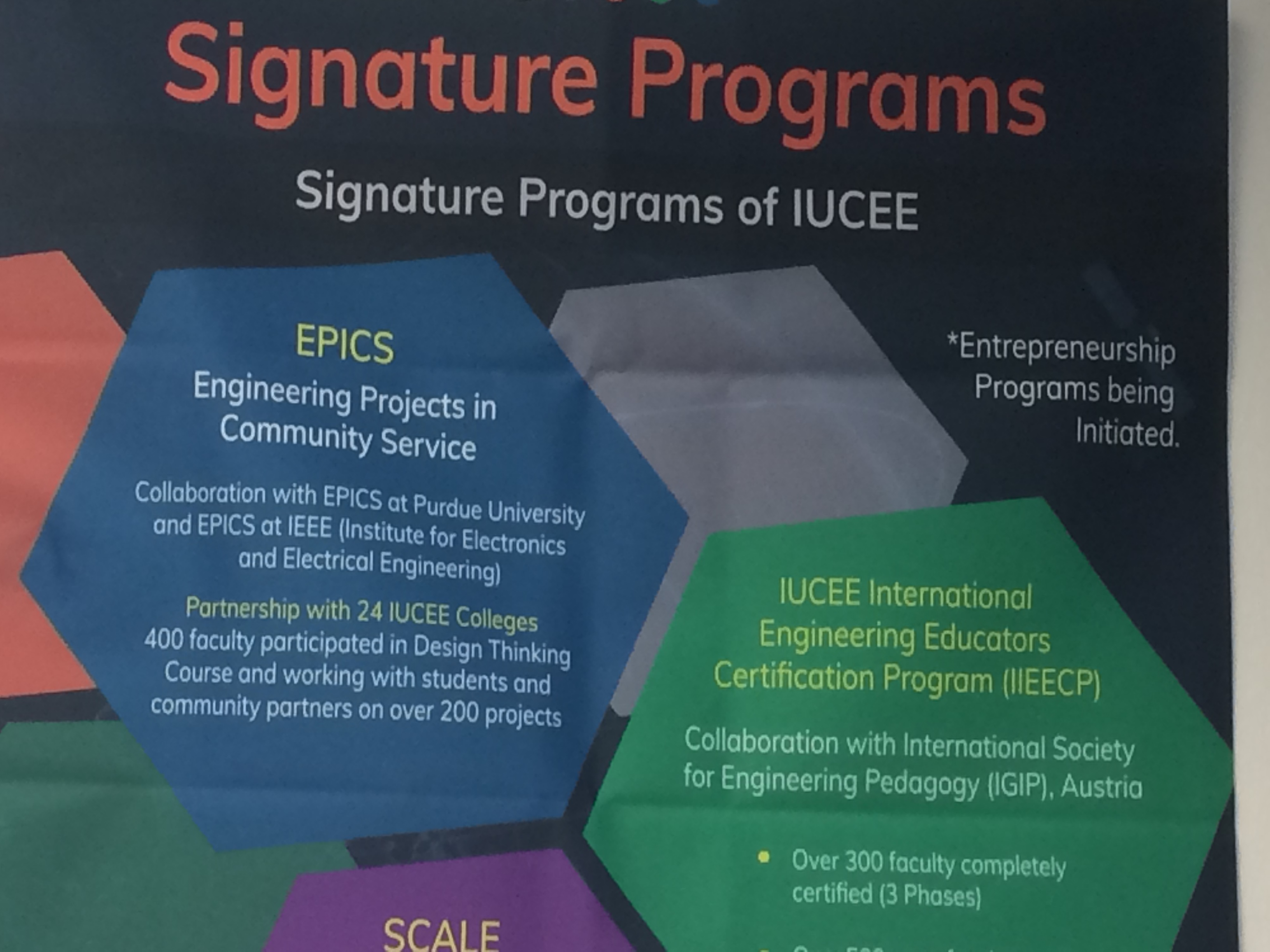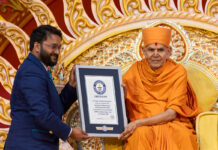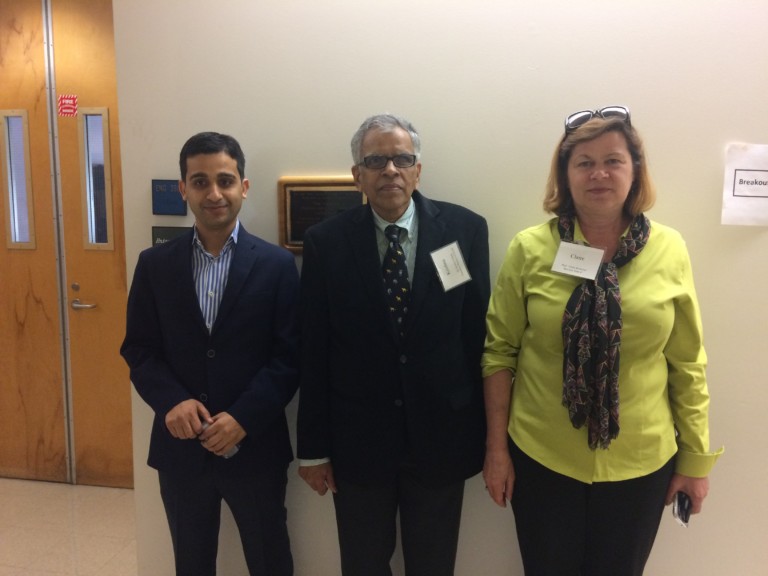
Lakshmi Iyer
India Post News Service
SAN JOSE, CA: IUCEE (Indo Universal Collaboration for Engineering Education) held their event, the Silicon Valley Indian Engineering Education Forum, at San Jose State University’s Charles W Davidson College of Engineering on Saturday, May 19.
Hosted by Dr. Krishna Vedula – Executive Director, IUCEE and Dean Emeritus, College of Engineering, University of Massachusetts, Lowell, and San Jose State University (SJSU) professors, Dr. Sheryl Ehrman – Don Beall Dean of College of Engineering and Dr. Claire Komives, the event was an opportunity to interact with some of the best and brightest minds from the worlds of academia, industry and entrepreneurship.
IUCEE (http://www.iucee.org) is an organization that was formed with the mission of transforming engineering education in India.
Together with a consortium of Indian colleges such as BVB, they are taking engineering education in India to the next level, by helping them upgrade to global standards in academic training, and fostering creativity, innovation and entrepreneurship in students.
IUCEE provides mentoring and educational support to these institutes by means of visiting faculty and webinars.
Initially, a few Indian entrepreneurs such as Narayana Murthy and Desh Deshpande funded it.
The three keynote speakers for the event were:
– Ashok Shettar – Vice Chancellor of KLE Tech University,
– A. G. Karunakaran – CEO of MulticoreWare and
– Vivek Wadhwa – Distinguished Fellow, CMU University
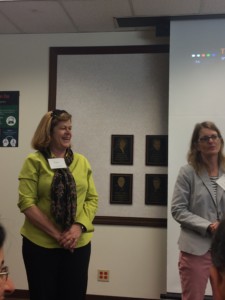
Ashok Shettar heads BVG College in the Hubbuli-Dharwar region of northern Karnataka in India. He mentioned with pride how his college had recently been cited in an MIT report on the global state-of-the-art in engineering education – the only institution from India to be listed in this report as one to watch out for in the future.
In 2017, the Indo-US Council for Engineering Education awarded BVG “Outstanding Institutional Transformation in Engineering Education.”
India has about 3289 engineering colleges, and the total enrollment in them is about 1.5 million, far surpassing the US average of around 70,000 engineering graduates per year. However, according to AICTE, the Indian governing body for technical institutes, only 50.1% of these seats get filled each year and colleges struggle to stay open.
In his presentation, Shettar noted that more than 95% of the engineering colleges in India are affiliated to some university and only about 5% are autonomous. He then explained with a graph, “The space of innovation in a college depends on the level of autonomy that it has.”
Hence, BVG became autonomous from 2007 and in 2015, became a full-fledged university. Ashok Shettar credited the IUCEE for their involvement in their growth.
Today’s students increasingly desire experiential, contextual and situated education as opposed to the old method of purely classroom and textbook-based learning.
BVG has moved to an internationally based curriculum framework that is outcome-based.
The first year curriculum has courses such as Social Innovation and Engineering Exploration (the latter designed in collaboration with Virginia Tech in the US), where students understand social needs and learn how to connect these needs to technology.
In the second and third years, they learn engineering design and product realization in partnership with industry under the “flipped classroom” model.
Shettar also aims at creating an entrepreneurship model for Tier 2 cities in India that are declining and losing competitiveness due to the brain drain to metros and countries such as the US.
“What will happen to the social fabric of these cities?” Shettar wondered aloud.
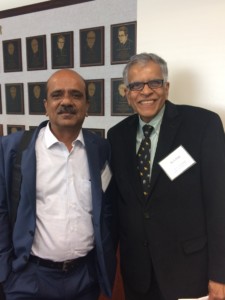
Therefore, they invited successful entrepreneurs from Indian metros to their campus, and established an eco-system where the startups built there could actually benefit from the pool of talent in the college.
Today, the KLE Center for Technology Innovation has enabled adding over 550 new engineering jobs to the region’s economy and some of their incubated startups boast patents and high valuations.
A.G. Karunakaran, the other keynote speaker, spoke about his journey as an entrepreneur from his early days at Auroville in Pondicherry, working for Pragatiunder a French born serial entrepreneur.
He went on to work for HCL in Singapore and in the US, learning business development skills, and also with Wipro and OPTI.
Karunakaran attended his first TiE conference in 1995 and is now a regular.
Inspired to start his entrepreneurship journey, he happened to share a deep conversation with a friend, Matt Reddy, in a Taiwan bar. Reddy questioned him about his motive for becoming an entrepreneur. He asked, “What’s the more than money reason for you to start this company?”
At that time the world of chip design had undergone significant changes from manual drawings to the language-based design through Verilog and VHDL. The need for FABs to design chips was being done away with and application-specific integrated chips were created.
However, there were still hardly any hardware design jobs in India. Karunakaran replied, “I want to create at least 50 hardware design jobs in India.” Some folks laughed. Karunakaran later formed GDA Technologies, which was acquired by L & T. Today, he is the CEO of MulticoreWave, a company specializing in high performance video, computer vision and image software libraries and software solutions. (Source: LinkedIn.com).
The seminar had three breakout sessions: Entrepreneurship and Mentorship, Executive Roundtable – focusing on making engineers employable as new hires, increasing engagement and diversity and Emerging Tech.
Dr. Krishna Vedula concluded by having everyone commit to three action points that they could do to enhance the mission of IUCEE, whether it was teaching a webinar class or reaching out to one’s network for this or contributing in other ways.

